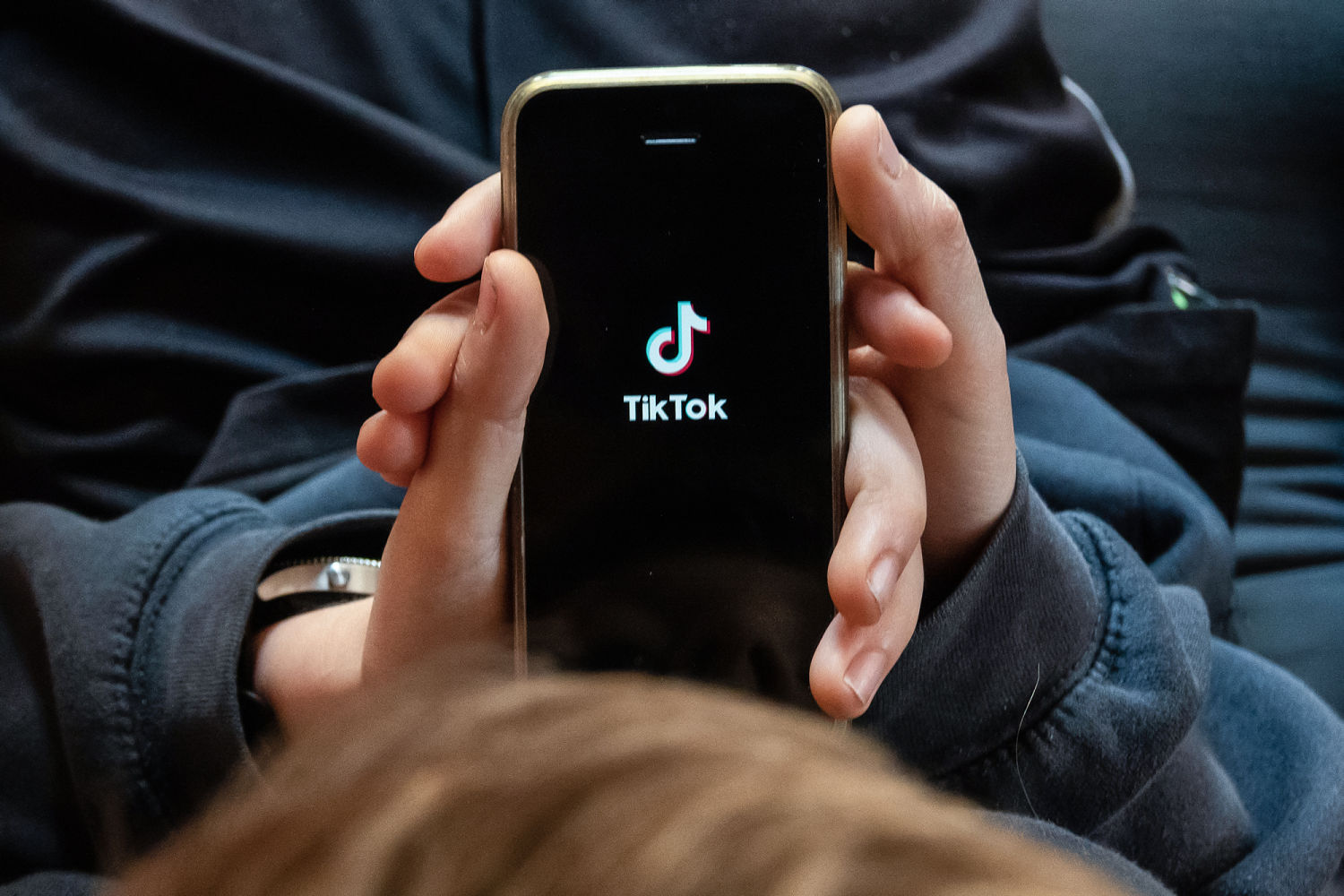
A three-judge panel of the D.C. Circuit U.S. Court of Appeals sounded unconvinced Monday that the TikTok “sale or ban” law, signed by President Joe Biden in April, was unconstitutional.
The law, which would have gone into effect no earlier than this January, is effectively on pause while TikTok’s legal challenge works its way through the courts.
In a two-hour hearing, lawyers for TikTok argued that its current business structure is protected by its free speech rights under the First Amendment and that the government’s argument against Chinese influence over TikTok’s algorithms is unsupported.
The U.S. government argued that TikTok, owned by parent company ByteDance, which was founded by Chinese entrepreneurs, poses a national security threat and exposes the data of its 170 million American users to the Chinese Communist Party. Judges questioned TikTok about China’s ability to determine what content is served to American users via TikTok’s algorithms, including its “For You Page.”
“The government is just flat wrong,” TikTok’s lawyer, Andrew Pincus said. “The recommendation engine itself is influenced in the U.S., it’s trained in the U.S. on U.S. data, it’s modified in the U.S. based on U.S. content moderation decisions.”
In 2022, TikTok launched an initiative called Project Texas to demonstrate its commitment to safeguarding U.S. user data and governance transparency. It includes having Oracle, a U.S. software company, isolate TikTok’s services in the U.S. within Oracle’s U.S. cloud environment. In December 2022, Forbes reported that ByteDance employees used TikTok to monitor its journalists’ locations in an effort to discover which employees were leaking confidential materials. TikTok and ByteDance have since condemned the practice and said that three employees involved were terminated, with an additional employee resigning.
Pincus also said that the data TikTok collects from American users is anonymized and is comparable to other Chinese companies, like major e-commerce platforms. While Pincus didn’t name the e-commerce platforms, Chinese companies Shein and Temu have skyrocketed in popularity with American consumers in recent years. Pincus characterized TikTok as being unfairly singled out, an argument that some TikTok creators have also made in defense of the platform, noting that China has repeatedly obtained American user data from U.S. social media companies in the past.
In response, the government argued that TikTok’s source code was created in China and that the platform may continue to be influenced by China. The judges also questioned whether the U.S. branch of TikTok is protected by First Amendment speech laws while it remains under the ownership of ByteDance. Judge Neomi Rao cited a 1988 case, one that the government didn’t cite in its argument against TikTok, in which the circuit upheld the Justice Department’s closure of the Palestine Information Office, a U.S. entity, due to its association with a “designated terrorist organization.”
“Our circuit seemed to suggest very strongly that the control or the relationship itself was a strong justification for what the government did,” Rao said. Pincus said he was not familiar with the case.
TikTok and ByteDance have said that they will not be able to comply with the “sale or ban” law as it is laid out, which would require U.S. TikTok to be divested from ByteDance and sold to U.S. ownership before Jan. 19, 2025. An extension could be granted until April if TikTok is seen to be attempting to comply with the divestiture order. If not, U.S. app stores like Apple’s App Store and Google’s Play store will have to stop offering TikTok, and internet service providers will be compelled to stop supporting access to TikTok.
TikTok creators and users in the U.S. have responded overwhelmingly negatively to the proposed ban. During the hearing, TikTok argued that creators would not be able to replicate their account followings on other platforms, limiting their own speech and business activity on TikTok. The government responded that it is not targeting the creators, just the perceived Chinese influence within the platform.
In court documents filed ahead of the hearing, the Justice Department and a senior U.S. intelligence official said they have no direct evidence that China has used TikTok for propaganda purposes in the U.S., but that there is significant risk it could happen. The documents also cited two academic studies that suggest TikTok favors pro-China content over anti-China content, such as content related to Chinese treatment of the Uyghur minority group and Tibet. TikTok characterized the studies as deeply flawed.
While Biden signed the proposed TikTok “sale or ban” law, he and Vice President Kamala Harris have used the platform to campaign for the 2024 election, with the “Kamala HQ” account (previously “Biden HQ”) posting regularly to over 4.4 million followers. The last post on the account, from Sunday, highlighted Donald Trump’s post on Truth Social that said “I HATE TAYLOR SWIFT!” Trump, who initially tried to ban TikTok in 2020, a move that was then blocked by federal courts, also has a TikTok account with over 11 million followers. Trump then expressed support for TikTok following Biden’s passage of the national security package that included the provision to ban TikTok.



